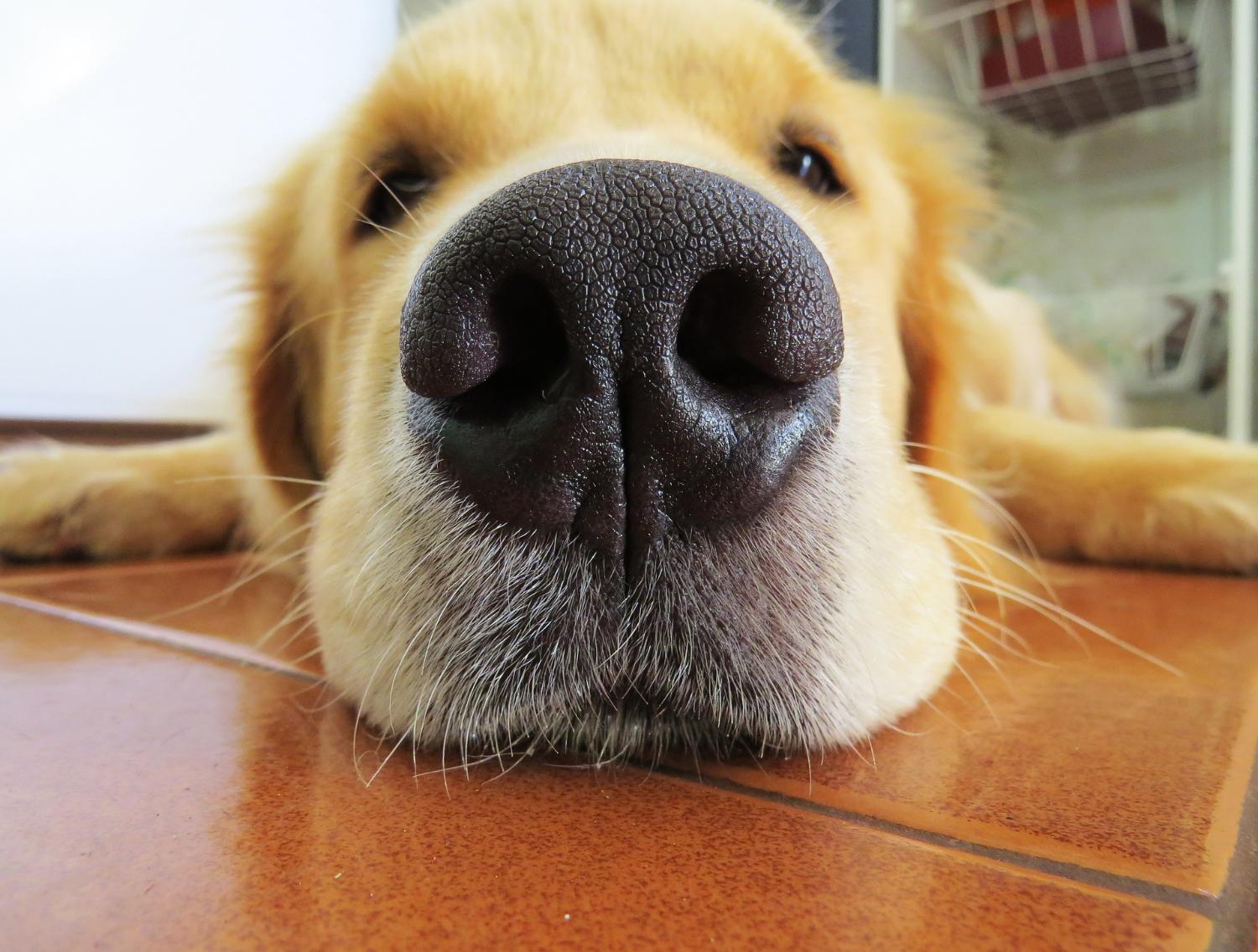As dog lovers, we often find ourselves scanning our furry friends for signs of health and happiness. One common observation that can spark concern is the state of a dog’s nose—specifically, whether it feels dry or not. Many pet owners have heard the age-old belief that a dry nose signals illness, while others dismiss this notion as mere myth. So, what’s the reality?
In this article, we’ll explore the science behind your dog’s nose, debunk prevalent myths, and provide you with the information you need to understand your pup’s health better. Whether you’re a seasoned dog owner or a new companion to a four-legged friend, this guide will clarify what a dry nose might really mean for your canine companion. With a friendly tone and informative insights, let’s dive into the facts and help you keep your pet as healthy and happy as possible!
Table of Contents
- Understanding the Significance of a Dogs Nose Temperature
- Common Myths Surrounding Dry Dog Noses
- Signs of Health Issues Linked to a Dry Nose
- Practical Tips for Keeping Your Dogs Nose Healthy
- Q&A
- Insights and Conclusions
Understanding the Significance of a Dogs Nose Temperature
When examining your dog’s health, temperature can be an important indicator, but a dry nose is often misconstrued as a sign of illness. While many dog owners worry that a warm or dry nose indicates fever or sickness, the truth is a dog’s nose temperature can fluctuate due to various circumstances. Factors such as weather conditions, activity level, and even time of day can influence the moisture and temperature of your furry friend’s nose. A cool, wet nose may be common, but it doesn’t solely define your dog’s health or mood.
It’s essential to recognize that a dry nose isn’t always synonymous with illness. To enhance your understanding, consider these points regarding nose temperature:
- Hydration Levels: Dehydration can lead to a dry nose, so ensure your dog has access to fresh water.
- Environmental Factors: Hot weather or prolonged exposure to heat can cause a nose to dry out.
- Health Conditions: Certain medical issues might cause a dry nose, but these should be assessed in context with other symptoms.
Common Myths Surrounding Dry Dog Noses
Many dog owners believe that a dry nose indicates a sick dog. This is one of the most widespread misconceptions. In reality, the condition of a dog’s nose can fluctuate frequently due to various factors. For instance, a dog might have a dry nose after playing outside in the sun or because they’ve been sleeping on a warm surface. Similarly, environmental conditions such as low humidity or excessive air conditioning can contribute to dryness. It’s essential to recognize that a dry nose doesn’t always equal illness.
Another myth is that a wet nose is an absolute sign of good health. While a moist nose can indeed be a sign that your dog is well-hydrated and feeling fine, this is not a definitive measure of health. Here are some factors to consider:
Hydration: A dog can be well-hydrated and still have a dry nose.
Activity Level: Active dogs may have drier noses after running or playing.
Age: Older dogs might have naturally drier noses due to aging.
Signs of Health Issues Linked to a Dry Nose
A dry nose in dogs can sometimes be more than just a simple nuisance; it may indicate underlying health concerns that require attention. While a change in moisture levels can be influenced by several benign factors, such as weather or activity level, certain signs should trigger a visit to the veterinarian. Keep an eye out for symptoms like:
Persistent dryness: If your dog’s nose remains dry over a prolonged period.
Cracking or bleeding: Observe for any painful fissures on the nose.
Change in appetite: Sudden disinterest in food can signal illness.
Frequent coughing or sneezing: Respiratory issues may manifest alongside a dry nose.
Behavioral changes: Lethargy or unusual irritability might indicate discomfort.
In addition to the signs mentioned, it’s essential to consider the overall condition of your dog’s skin and coat. An unusually dry nose paired with flaky skin or excessive shedding may suggest conditions like allergies, infections, or even autoimmune disorders. Below is a quick reference table outlining some potential health issues linked to a dry nose:
| Health Issue | Associated Symptoms |
|---|---|
| Allergies | Itching, redness, or rash |
| Dehydration | Dry gums, lethargy |
| Nasal Infection | Discharge, sneezing, coughing |
| Autoimmune Diseases | Skin lesions, weight loss |
Practical Tips for Keeping Your Dogs Nose Healthy
Maintaining your dog’s nose in optimal condition is essential for their overall health and well-being. A few simple practices can help ensure that your furry friend’s schnoz stays moist and healthy. Regularly check for signs of dryness, cracks, or other abnormalities. If you notice any issues, consider implementing the following tips:
Hydration: Always provide fresh, clean water to keep your dog hydrated.
Humidity Control: Use a humidifier in dry environments, especially during winter months.
Limit Sun Exposure: Protect your dog’s nose from excessive sun by applying pet-safe sunscreen.
Regular Vet Check-ups: Schedule routine visits to ensure any underlying health issues are addressed.
Additionally, certain lifestyle choices can contribute greatly to the health of your dog’s nose. Implementing a balanced diet rich in vitamins and omega fatty acids, along with regular exercise, can help maintain their coat and skin health, including the nose. Consider the following dietary options:
| Food Type | Benefit |
|---|---|
| Fish (Salmon, Sardines) | High in Omega-3 fatty acids for skin health |
| Sweet Potatoes | Rich in antioxidants and vitamins |
| Plain Yogurt | Supports gut health which can improve skin condition |
Q&A
Q1: Is a dry nose in dogs a sign of illness?
A1: Not necessarily! A dry nose can be completely normal and doesn’t always indicate that your dog is unwell. Dogs’ noses can become dry due to various factors, including weather changes, dehydration, or simply being in a warm environment. It’s essential to consider other signs of illness, such as lethargy or lack of appetite, before jumping to conclusions.
Q2: What are some common myths about dog noses?
A2: One of the most prevalent myths is that a warm, dry nose always means a dog is sick. In reality, dogs’ noses can vary in temperature and moisture throughout the day. Other myths suggest that dogs with dry noses are always dehydrated, but that’s not true! Hydration levels and nose moisture don’t always correlate.
Q3: When should I be concerned about my dog’s dry nose?
A3: While a dry nose is often harmless, you should consult a veterinarian if you notice persistent dryness accompanied by other concerning symptoms, like cracks or sores, excessive licking, changes in behavior, or any nasal discharge. These could indicate underlying health issues that need attention.
Q4: How can I help keep my dog’s nose healthy?
A4: Keeping your dog hydrated is crucial! Make sure they always have access to fresh water. If the air in your home is dry, consider using a humidifier. Some dog owners also apply dog-safe balms to soothe and hydrate their dog’s nose if it’s particularly dry or cracked.
Q5: Are there specific breeds more prone to dry noses?
A5: While any dog can experience a dry nose, certain breeds might be more susceptible due to their skin types or living conditions. Breeds that have shorter muzzles or skin folds, such as Bulldogs or Pugs, may be more prone to moisture loss. However, it’s essential to monitor each dog individually.
Q6: Can a dog’s nose change from wet to dry?
A6: Absolutely! A dog’s nose is quite dynamic and can shift from wet to dry based on their activity level, the environment, and even how they’re feeling at that moment. After a romp in the yard, for instance, your dog’s nose may be a bit wet from sniffing around, while resting in a warm spot could dry it out.
Q7: Is there a way to tell if my dog is sick based solely on their nose?
A7: While nose condition can provide clues, it should never be the sole indicator of health. It’s always best to look at your dog as a whole. Changes in behavior, appetite, energy levels, and other physical symptoms are more reliable signs of health issues. If in doubt, your vet is your best resource!
This friendly Q&A format provides important information about dog nose health while addressing common concerns and dispelling myths. Remember, as caring dog owners, keeping an eye on our furry friends is essential for their well-being!
Insights and Conclusions
understanding the health of your dog involves more than just checking the moisture of their nose. While the idea that a dry nose is a clear indicator of illness is a common myth, it’s essential to consider the whole picture of your pet’s well-being. Factors such as environmental conditions, activity level, and even individual characteristics come into play. If you notice persistent dryness or other concerning symptoms, consulting your veterinarian is always the best course of action. By staying informed and attentive, you can ensure your furry friend stays happy and healthy. Thank you for reading, and remember to give your pup some extra love today!

















